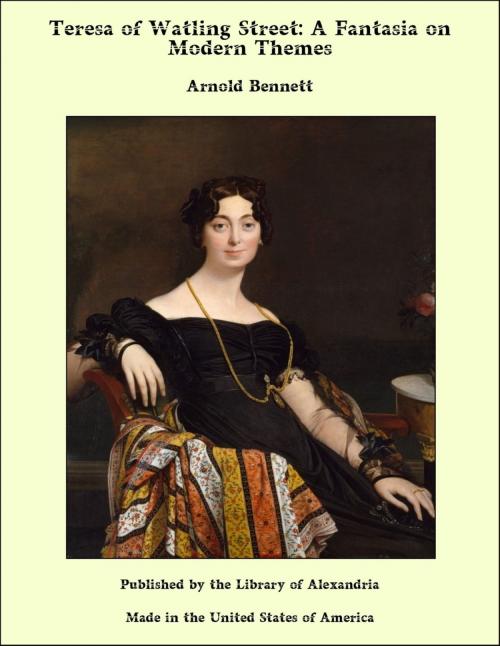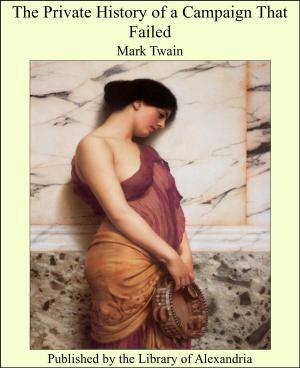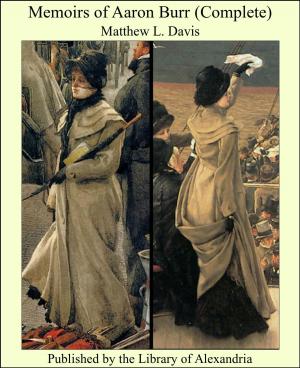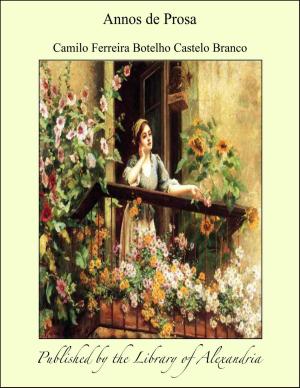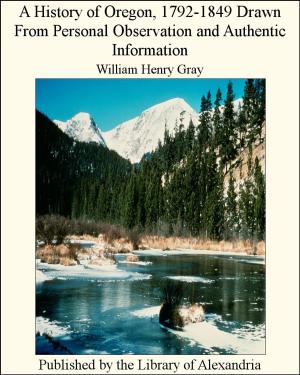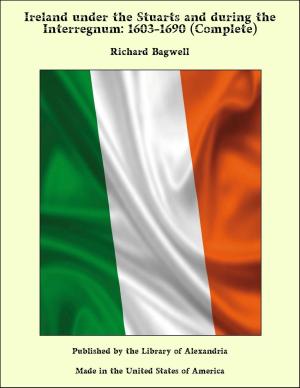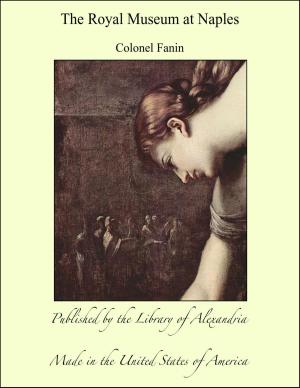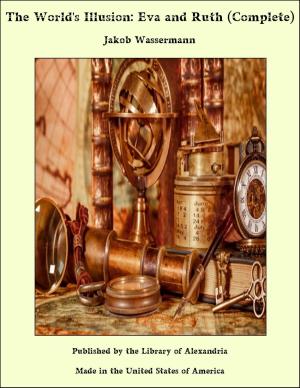Teresa of Watling Street: A Fantasia on Modern Themes
Nonfiction, Religion & Spirituality, New Age, History, Fiction & Literature| Author: | Arnold Bennett | ISBN: | 9781465616814 |
| Publisher: | Library of Alexandria | Publication: | March 8, 2015 |
| Imprint: | Language: | English |
| Author: | Arnold Bennett |
| ISBN: | 9781465616814 |
| Publisher: | Library of Alexandria |
| Publication: | March 8, 2015 |
| Imprint: | |
| Language: | English |
Since money is the fount of all modern romantic adventure, the City of London, which holds more money to the square yard than any other place in the world, is the most romantic of cities. This is a profound truth, but people will not recognise it. There is no more prosaic person than your bank clerk, who ladles out romance from nine to four with a copper trowel without knowing it. There is no more prosaic building than your stone-faced banking office, which hums with romance all day, and never guesses what a palace of wonders it is. The truth, however, remains; and some time in the future it will be universally admitted. And if the City, as a whole, is romantic, its banks are doubly and trebly romantic. Nothing is more marvellous than the rapid growth of our banking system, which is twice as great now as it was twenty years ago—and it was great enough then. Such were the reflections of a young man who, on a June morning, stood motionless on the busy pavement opposite the headquarters of the British and Scottish Banking Company, Limited, in King William Street, City. He was a man of medium size, fair, thick-set, well-dressed, and wearing gold-rimmed spectacles. The casual observer might have taken him for a superior sort of clerk, but the perfect style of his boots, his gloves, and his hat precluded such a possibility; it is in the second-rate finish of his extremities that the superior clerk, often gorgeous in a new frock-coat, betrays himself. This particular young man, the tenor of whose thoughts showed that he possessed imagination—the rarest of all qualities except honesty—had once been a clerk, but he was a clerk no longer. He looked at his watch; it showed three minutes to twelve o’clock. He waited another minute, and then crossed through the traffic and entered the sober and forbidding portals of the bank. He had never before been inside a City bank, and the animated scene, to which many glass partitions gave an air of mystery, would have bewildered him had he not long since formed the immutable habit of never allowing himself to be bewildered. Ignoring all the bustle which centred round the various cash desks lettered A to F, G to M, and so on, he turned unhesitatingly to an official who stood behind a little solitary counter.
Since money is the fount of all modern romantic adventure, the City of London, which holds more money to the square yard than any other place in the world, is the most romantic of cities. This is a profound truth, but people will not recognise it. There is no more prosaic person than your bank clerk, who ladles out romance from nine to four with a copper trowel without knowing it. There is no more prosaic building than your stone-faced banking office, which hums with romance all day, and never guesses what a palace of wonders it is. The truth, however, remains; and some time in the future it will be universally admitted. And if the City, as a whole, is romantic, its banks are doubly and trebly romantic. Nothing is more marvellous than the rapid growth of our banking system, which is twice as great now as it was twenty years ago—and it was great enough then. Such were the reflections of a young man who, on a June morning, stood motionless on the busy pavement opposite the headquarters of the British and Scottish Banking Company, Limited, in King William Street, City. He was a man of medium size, fair, thick-set, well-dressed, and wearing gold-rimmed spectacles. The casual observer might have taken him for a superior sort of clerk, but the perfect style of his boots, his gloves, and his hat precluded such a possibility; it is in the second-rate finish of his extremities that the superior clerk, often gorgeous in a new frock-coat, betrays himself. This particular young man, the tenor of whose thoughts showed that he possessed imagination—the rarest of all qualities except honesty—had once been a clerk, but he was a clerk no longer. He looked at his watch; it showed three minutes to twelve o’clock. He waited another minute, and then crossed through the traffic and entered the sober and forbidding portals of the bank. He had never before been inside a City bank, and the animated scene, to which many glass partitions gave an air of mystery, would have bewildered him had he not long since formed the immutable habit of never allowing himself to be bewildered. Ignoring all the bustle which centred round the various cash desks lettered A to F, G to M, and so on, he turned unhesitatingly to an official who stood behind a little solitary counter.
